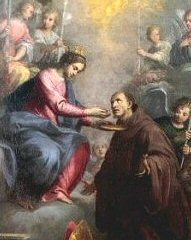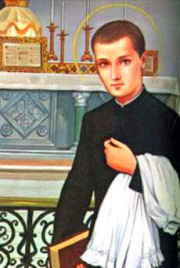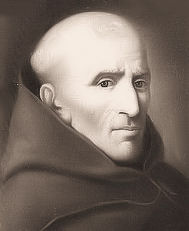“This poor widow put in more than all the rest.” (Luke 21:3)
We so often concern ourselves with calculations and comparisons. We weigh the advantages and disadvantages of a course of action. We look over our shoulders to see what someone else is pledging to the capital campaign or bringing to the parish potluck dinner. We sometimes burden our children by comparing their accomplishments with those of their older siblings.
Jesus knows his disciples also engage in comparisons, but he invites them to revise their calculations. No, the widow’s “two small coins” can’t objectively compare with the much greater offerings of the wealthy. Yet Jesus insists that she gave more because it was all she had. The difference wasn’t how much she gave but how much (or how little) she had left over. This is the calculation that demonstrated her trust in her heavenly Father.
In a subtle way, these wealthy people probably felt they were giving God enough to make sure that he would prosper them in return. There was a certain proportionality in their sense of giving. They felt that God owed them based on how generous they were.
By contrast, this widow knew there was an infinite gap between her and God. She knew that she depended on him for her very “livelihood”: her life, her health, her family, her food, her shelter, her talents, all that she was and all that she had. It all had come from God, and so it all belonged to God. She had no illusion of being able to give him what he truly deserved or repay him for his kindness to her. But this realization didn’t make her feel worthless. Quite the opposite, she was overflowing with gratitude. And her generosity made Jesus smile with delight.
So go ahead and make comparisons if you want. Just don’t waste your time comparing yourself with someone else who may have received much less or given much more than you. Instead, take a look at how generous God has been to you. He has held nothing back, including his only begotten Son. Soak in that love, and let it stir up your own generosity. Don’t try to figure out how much you have to offer. Simply give him as much as you can.
“Jesus, you love a cheerful giver. In gratitude I give you my heart.”
Revelation 14:1-5; Psalm 24:1-6


 St. Peter, bishop of Alexandria, was beheaded on November 25, 311, during Maximinus Daia's persecution. He was a great bishop, famous for wisdom and holiness; "a model of charity and zeal, severe towards himself, merciful to sinners, a divine model of the Christian teacher," says Eusebius.
St. Peter, bishop of Alexandria, was beheaded on November 25, 311, during Maximinus Daia's persecution. He was a great bishop, famous for wisdom and holiness; "a model of charity and zeal, severe towards himself, merciful to sinners, a divine model of the Christian teacher," says Eusebius.  This young saint of the Society of Jesus was born in Flanders, the oldest of five children. He grew up in an atmosphere of political turmoil caused by a religious war between the Catholic and Protestant sections of the Netherlands. He studied at the Gymnasium at Diest and worked as a servant in the household of Canon John Froymont at Malines in order to continue his studies.
This young saint of the Society of Jesus was born in Flanders, the oldest of five children. He grew up in an atmosphere of political turmoil caused by a religious war between the Catholic and Protestant sections of the Netherlands. He studied at the Gymnasium at Diest and worked as a servant in the household of Canon John Froymont at Malines in order to continue his studies. Leonard, called "the great missionary of the 18th century" by Saint Alphonsus Liguori, was another Franciscan who tried to go to the foreign missions (China), failed at that and succeeded tremendously in some other work.
Leonard, called "the great missionary of the 18th century" by Saint Alphonsus Liguori, was another Franciscan who tried to go to the foreign missions (China), failed at that and succeeded tremendously in some other work. 


